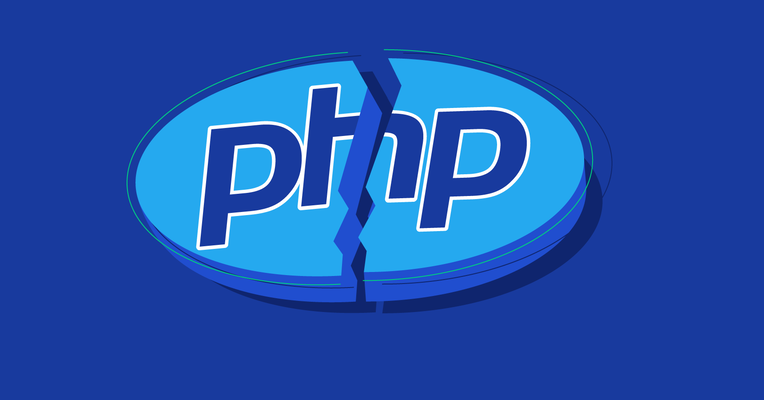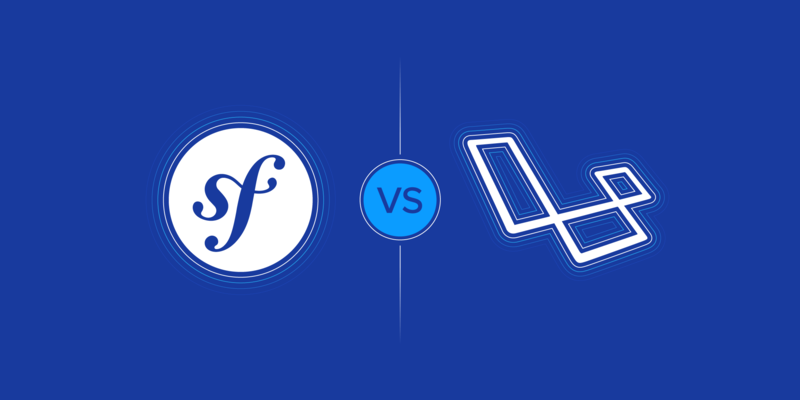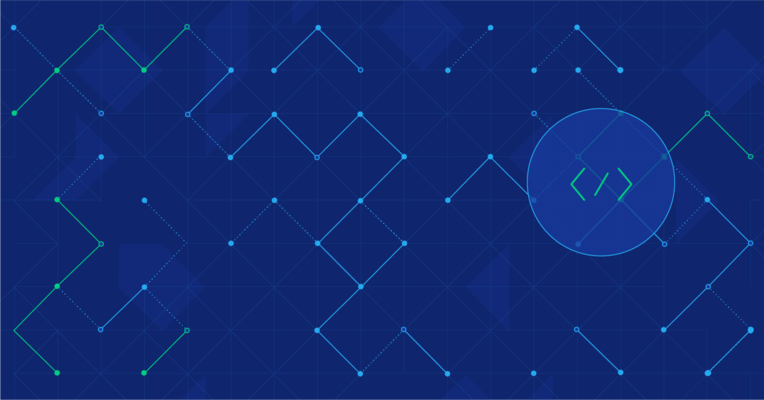
Hire CodeIgniter Developers
Hire the Top 3% of Freelance CodeIgniter Developers
Whether you need a custom dashboard, a dynamic web application, or a streamlined API integration, our CodeIgniter developers harness the framework’s speed and simplicity to deliver feature-rich solutions. They excel at crafting web platforms that are both efficient and easy to scale as your business evolves.
No-Risk Trial, Pay Only If Satisfied.
Hire Freelance CodeIgniter Developers
Enrico Carniani
Enrico is a software engineer with broad experience in several IT fields and languages, including Objective-C, C++, C, Java, PHP, JavaScript, and Python. His prime concern is managing and designing things at their best and delivering his clients the most excellent solutions depending on their requirements.
Show MoreValters Valdersteins
Valters is a senior programmer with several years of experience in the IT field. He hits the ground running when using new technologies and has a habit of unceasingly improving his existing skills. He's worked in variously sized companies and projects and has been mainly focusing on web development as well as SAP development. Other than that, Valters is a person with whom it's easy and fun to work with.
Show MoreAdrian Petcu
Adrian has 10+ years of experience in engineering and management for major companies, including Endava, ING Group, and IBM. His expertise covers enterprise B2B products, ERP creation from scratch, consultancy and code quality analysis, performance optimization and process improvement, communication and multi-user collaboration platforms, and hybrid mobile applications. Adrian is passionate about improving processes and workflows, always finding new ways to optimize time spent on manual work.
Show MoreDhara Dhaval Shah
Dhara is an experienced full-stack web developer with 17+ years of industry experience and a bachelor's degree in software engineering. With a proven track record of developing various web applications with PHP and MySQL, she brings knowledge and expertise to every project. She has worked with clients from around the world, delivering high-quality work. With a passion for problem-solving and a love of learning, Dhara always seeks exciting projects that will challenge and inspire her.
Show MoreErick de Azevedo Lima
Erick has been in IT since 2008, developing strong SQL skills. He has worked in various business intelligence and software development roles, enabling him to acquire robust SQL and OOP skills. He's been working for the last ten years as a PHP developer. Erick also knows C, C++, and JavaScript and has some knowledge of React, making him a web developer with some experience in desktop development Visual C++.
Show MoreAshokbhai Desai
Ashok has around 10 years of work experience in web development and web design with PHP, WordPress, WooCommerce, WordPress plugin development and customization, CodeIgniter, AWS set up, payment gateways, MySQL, optimization of websites, and basic SEO, HTML5, jQuery, CSS3, SaaS, PSD, and HTML. Ashok has developed over 100 websites over the years, including blogs, eCommerce websites, forums, social networking, and booking systems.
Show MoreAndy Pugh
Andy has been a software developer for close to 15 years now, primarily coding in PHP and building WordPress sites of all sizes, from digital brochures to full eCommerce locations. He is a full-time freelance contractor and is well acquainted with the rhythm of remote work.
Show MoreChris Curzon
Chris is a professional software engineer with 20+ years of industry experience. He has worked on projects for Sony, Disney, Turner, and BBC. He is experienced in both back-end and front-end technologies, with hands-on experience on large-scale bespoke CMS and UGC deployments, as well as browser-based games. Most of Chris' recent work has used JavaScript, PHP, SQL, and Java, but he is capable with many other languages as well.
Show MoreSaid Kholov
Said is an accomplished software developer with over a decade of experience in the field of computer science. He has honed his skills over the years and has become adept at leading front-end development teams on numerous successful projects. Said's diverse background has allowed him to work with software companies across a wide range of industries, enabling him to acquire a comprehensive understanding of various products and best practices.
Show MoreRichard Knight Harrison
Richard is a full-stack developer with 15 years of experience in web development, specializing in front-end frameworks (React, Angular, and Vue) and back-end technologies (Node.js, PHP, Django, Ruby on Rails, and .NET). He has deployed applications to AWS, Azure, and GCP. His notable projects include Droppp (NFT transactions) and Layerfive (SaaS platform). Richard's expertise is a valuable asset to tech-driven companies.
Show MoreMuhammad Anees Ul Haq
With over 15 years of experience, Muhammad has developed a wide range of web applications, including a cashback application, white-label, and eCommerce solutions for small startups and fairly substantial companies. He shines in his complete end-to-end management skills and in developing new projects. Muhammad is a firm believer in strictly following deadlines and working in a way that fosters long-term work relationships.
Show MoreDiscover More CodeIgniter Developers in the Toptal Network
Start HiringA Hiring Guide
Guide to Hiring a Great CodeIgniter Developer
CodeIgniter, known for its lightweight structure, speed, and flexibility, is a powerful PHP framework ideal for building scalable web applications. This guide explores the features that make the framework unique, such as its optional MVC architecture, caching capabilities, and extensibility, and provides actionable advice for hiring skilled developers.
Read Hiring Guide... allows corporations to quickly assemble teams that have the right skills for specific projects.

Despite accelerating demand for coders, Toptal prides itself on almost Ivy League-level vetting.









How to Hire CodeIgniter Experts Through Toptal
Talk to One of Our Client Advisors
Work With Hand-selected Talent
The Right Fit, Guaranteed
EXCEPTIONAL TALENT
How We Source the Top 3% of CodeIgniter Developers
Our name “Toptal” comes from Top Talent—meaning we constantly strive to find and work with the best from around the world. Our rigorous screening process identifies experts in their domains who have passion and drive.
Of the thousands of applications Toptal sees each month, typically fewer than 3% are accepted.
Capabilities of CodeIgniter Developers
With deep knowledge of the CodeIgniter framework, our developers help businesses streamline operations, enhance customer engagement, and drive growth. Whatever your needs, our developers provide tailored services that maximize the value of your CodeIgniter platform.
API Development
Database Design and Management
Plugin and Extension Development
E-commerce Development
CMS Development and Customization
Third-party Service Integration
Custom Web Application Development
Performance Optimization
Security Enhancements
Migration and Version Upgrades
FAQs
How quickly can you hire with Toptal?
Typically, you can hire CodeIgniter developers with Toptal in about 48 hours. For larger teams of talent or Managed Delivery, timelines may vary. Our talent matchers are highly skilled in the same fields they’re matching in—they’re not recruiters or HR reps. They’ll work with you to understand your goals, technical needs, and team dynamics, and match you with ideal candidates from our vetted global talent network.
Once you select your CodeIgniter developer, you’ll have a no-risk trial period to ensure they’re the perfect fit. Our matching process has a 98% trial-to-hire rate, so you can rest assured that you’re getting the best fit every time.
How do I hire CodeIgniter developers?
To hire the right CodeIgniter expert, it’s important to evaluate a candidate’s experience, technical skills, and communication skills. You’ll also want to consider the fit with your particular industry, company, and project. Toptal’s rigorous screening process ensures that every member of our network has excellent experience and skills, and our team will match you with the perfect CodeIgniter developers for your project.
How are Toptal CodeIgniter experts different?
At Toptal, we thoroughly screen our CodeIgniter programmers to ensure we only match you with the highest caliber of talent. Of the more than 200,000 people who apply to join the Toptal network each year, fewer than 3% make the cut.
In addition to screening for industry-leading expertise, we also assess candidates’ language and interpersonal skills to ensure that you have a smooth working relationship.
When you hire CodeIgniter programmers with Toptal, you’ll always work with world-class, custom-matched CodeIgniter developers ready to help you achieve your goals.
Can you hire CodeIgniter programmers on an hourly basis or for project-based tasks?
You can hire CodeIgniter developers on an hourly, part-time, or full-time basis. Toptal can also manage the entire project from end-to-end with our Managed Delivery offering. Whether you hire a CodeIgniter developer for a full- or part-time position, you’ll have the control and flexibility to scale your team up or down as your needs evolve. Our CodeIgniter developers can fully integrate into your existing team for a seamless working experience.
What is the no-risk trial period for Toptal CodeIgniter developers?
We make sure that each engagement between you and your CodeIgniter developer begins with a trial period of up to two weeks. This means that you have time to confirm the engagement will be successful. If you’re completely satisfied with the results, we’ll bill you for the time and continue the engagement for as long as you’d like. If you’re not completely satisfied, you won’t be billed. From there, we can either part ways, or we can provide you with another CodeIgniter developer who may be a better fit and with whom we will begin a second, no-risk trial.

How to Hire CodeIgniter Developers
CodeIgniter Developers Are in High Demand
As one of the most lightweight and flexible PHP frameworks, CodeIgniter has become a top choice for businesses seeking rapid, scalable web development solutions. Supported by PHP’s strong position—ranked 11th globally in 2024 by StackOverflow—CodeIgniter’s open-source structure has a promising future in web application development. But hiring the right developer can be challenging; top engineers must bring a deep understanding of PHP development and mastery of best practices and unique tools to unlock its full potential.
The framework’s appeal lies in its speed, minimal footprint, and modular design. With a download size of just 1.1MB, it avoids unnecessary bloat, allowing developers to add only the components they need. The framework also offers flexibility with its optional MVC (Model-View-Controller) architecture, enabling developers to follow a structured approach or adapt the framework for different coding styles. With built-in caching options that enhance performance and a highly extensible design, CodeIgniter suits beginners and experienced developers looking to scale applications efficiently.
This guide will equip you to find and hire experts. It covers the essential skills, standout attributes, and tailored strategies that distinguish top candidates. By following these tips, you’ll be ready to build a strong software development team capable of delivering high-performance applications aligned with your business needs.
What Attributes Distinguish Quality CodeIgniter Developers From Others?
CodeIgniter coders are responsible for building efficient, high-performing web applications that align with clients’ unique requirements and are designed for scalability. Often working closely with teams to integrate front-end and back-end elements, they understand how to structure projects, integrate databases, and optimize performance to create lightweight and robust applications.
High-quality developers should exhibit strengths in several areas:
- Efficiency in Development: Dedicated CodeIgniter developers must leverage the framework’s lightweight design, creating applications that run smoothly without excessive overhead. They’re proficient at setting up project structures and integrating components selectively, keeping applications lean and efficient.
- Mastery of MVC: CodeIgniter’s MVC architecture separates the application logic from the user interface, allowing developers to organize code efficiently and making the application easier to maintain and scale. High-quality developers can navigate this structure expertly, adapting the framework for non-MVC needs as required, demonstrating both structure and flexibility.
- Optimization: Expert developers are adept at using caching methods to enhance application speed and ensure smooth performance, which is essential for high-traffic applications. They understand how to configure routes for efficient navigation and implement debugging tools to resolve issues proactively.
- Security: Skilled developers understand the importance of security features, including defenses against cross-site scripting (XSS) and cross-site request forgery (CSRF), as well as context-sensitive escaping and content security policies. These features allow them to build secure applications that protect user data and ensure compliance with modern security standards.
- Adaptability and Extensibility: Experienced developers will extend the framework with only the necessary components, avoiding unnecessarily bloated apps. Their familiarity with best practices allows them to tailor each project to the client’s needs, adding functionality while maintaining simplicity. Many also bring complementary skills in JavaScript and MySQL, which support front-end integration and robust data handling.
- Effective Problem Solving and Collaboration: Beyond technical skills, top-notch developers communicate effectively with other team members, from front-end developers to project managers, ensuring each project aligns with client goals. Their problem-solving abilities allow them to deliver high-quality, scalable solutions supporting immediate and long-term objectives. They are also comfortable working within a variety of development methodologies, adapting to team workflows and project constraints with ease.
How Can You Identify the Ideal Codeigniter Developer for You?
Finding the right developer begins with a clear understanding of your project’s specific needs. Are you building a lightweight web app with basic functionality, or do you require a highly scalable system with complex integrations? Answering these questions will help determine the skills and years of experience required, guiding you toward the ideal candidate.
It is also important to understand how the framework compares to other popular tools like Laravel. While Laravel is known for its feature-rich ecosystem and robust tools, CodeIgniter shines with its simplicity, speed, and lightweight design. It is often the preferred choice for projects that prioritize rapid development, minimal setup, and flexibility—such as those requiring optional MVC architecture or quick deployment. A skilled developer will know how to leverage these strengths while also understanding scenarios where Laravel might be advantageous, showcasing their ability to adapt to project requirements.
Levels of Experience for CodeIgniter Developers
Start your hiring process by assessing your current capabilities and defining any skill gaps within your team. If your team already includes strong back-end expertise, you may only need a mid-level developer for specialized modules or tasks. On the other hand, if the project demands comprehensive solutions—from RESTful API integration to performance optimization—a senior developer will bring the depth of expertise required.
- Junior Developer: For straightforward projects such as setting up a website or building simple applications, a junior developer may suffice. Typically, junior developers have foundational PHP knowledge and are familiar with project setup, routing, and basic database integration. While they may lack experience with advanced features like performance optimization or debugging tools, they can effectively handle well-defined tasks under supervision. Junior developers often use tools like the framework’s helper functions to streamline repetitive tasks, such as form handling or URL generation, allowing for faster development.
- Mid-level Developer: When tackling mid-level complexity—such as API development or integration, building scalable applications, or implementing CodeIgniter MVC architecture—a mid-level developer is often the best fit. These professionals are equipped to work independently, handle form validation and caching, and optimize routes to ensure smooth performance. They can manage projects that require balancing functionality and efficiency while contributing to long-term application stability and building user-friendly experiences.
- Senior Developer: For large-scale, complex projects requiring high performance and security, a senior developer is indispensable. Senior developers bring extensive experience in advanced techniques like optimizing database integrations, managing migrations, and ensuring secure session management. Their expertise extends to deployment and upgrades, where maintaining compatibility and minimizing downtime is critical. Beyond technical skills, senior developers can take on strategic roles, mentoring junior team members and driving architectural decisions.
Another key consideration is balancing budget constraints with project complexity. Junior developers are cost-effective for simpler tasks, but investing in experienced talent is essential for applications requiring scalability, high performance, and long-term maintainability.
Ultimately, the ideal engineer is someone whose skill set aligns with your project’s development needs and whose experience level matches the complexity of the challenges you aim to solve. By taking a structured approach to identifying your priorities and evaluating candidates based on their ability to address them, you’ll ensure a successful hire that contributes to your project’s success.
How to Write a Job Description for Your CodeIgniter Project
Crafting a compelling job description is essential to attract the right CodeIgniter programmer for your project. Start by providing a brief overview of your company and the project’s goals, highlighting unique aspects that make the role appealing, such as opportunities to work on innovative applications or collaborate with a cutting-edge team. Be specific about the nature of the work to help candidates self-assess their fit for the position. Outlining your development process—whether Agile, iterative, or fixed-scope—can also help candidates assess compatibility with your team.
The responsibilities section should outline key tasks such as setting up the project structure, implementing routes, and optimizing applications for performance and scalability. Additionally, tasks like database integration, session management, form validation, and working with debugging tools should be mentioned. Depending on your needs, include responsibilities such as managing RESTful API integrations or overseeing upgrades and migrations.
Highlight the essential skills and qualifications required for the role. These may include:
- Proficiency in PHP development and a solid understanding of the framework
- Experience with the MVC architecture and the flexibility to adapt to non-MVC applications when necessary
- Familiarity with caching methods to improve application performance
- Knowledge of database integration and related best practices
- Experience using project management tools such as JIRA for tracking tasks and collaborating with distributed teams.
If your project requires advanced skills, such as handling deployments or customizing extensible components, make sure to specify these. Clearly indicate the desired experience level, whether you’re looking for a junior, mid-level, or senior developer.
Finally, include any practical details, such as whether the role is remote, part-time, or full-time, and specify any preferences for candidates working in particular time zones. By detailing the requirements and expectations of the role, you’ll ensure you attract qualified candidates capable of delivering efficient and scalable applications
What Are the Most Important CodeIgniter Developer Interview Questions?
The interview process is an opportunity to evaluate a candidate’s hands-on experience with the framework, technical skills, and problem-solving abilities. Below are key questions to ask, along with what a desirable answer should demonstrate:
Can you describe a project where you used the CodeIgniter framework? What challenges did you encounter, and how did you address them?
The candidate should provide a clear example of a project, outlining the goals, their specific contributions, and how they applied the framework’s features (e.g., MVC architecture, routes, or caching). They should also highlight challenges, such as debugging performance issues or integrating APIs, and explain their problem-solving approach.
How do you set up a CodeIgniter project structure? What are the key considerations for ensuring scalability and maintainability?
Look for an explanation of how the candidate organizes the project using the MVC pattern, keeping the code modular and clean. They should mention best practices, like separating concerns, using proper naming conventions, and planning for scalability by designing routes and components that can grow with the application.
What is your experience with the MVC architecture in CodeIgniter? Can you explain how you’ve implemented it in previous projects?
The candidate should be able to describe how they’ve utilized the MVC pattern to separate logic, presentation, and data handling. A strong answer would include how this approach enhanced maintainability and collaboration within a team, allowing front-end and back-end development to progress smoothly in parallel.
How do you optimize performance in a CodeIgniter application?
A strong candidate will discuss specific techniques, such as implementing caching (e.g., file-based or database caching), optimizing queries, and using lightweight libraries or components. They should also touch on reducing load times by streamlining routes and leveraging debugging tools to identify bottlenecks.
Can you explain your process for debugging a CodeIgniter application? What tools or methods do you use?
The candidate should demonstrate a methodical approach to debugging, including using built-in debugging tools, logging errors, and isolating problematic components. Advanced candidates might also mention integrating third-party tools for deeper analysis or performance monitoring.
How does CodeIgniter compare to Laravel, and why should you choose one over the other?
In this debate, both frameworks have their strengths, but the choice often depends on the project’s specific needs. Laravel is known for its rich ecosystem, built-in tools, and robust feature set, making it a great choice for complex applications that require advanced functionality out of the box. In contrast, CodeIgniter is lightweight, fast, and highly flexible, offering a minimalistic framework that is ideal for projects where speed, simplicity, and customizability are priorities. A skilled developer will understand the strengths and limitations of both frameworks and can articulate why one or the other is the right choice for your project, tailoring their approach to meet your unique requirements.
How do you approach CodeIgniter upgrades or migrations?
They should discuss steps for ensuring compatibility during upgrades, such as testing in a staging environment, reviewing deprecated features, and adapting the codebase where necessary. They should also emphasize minimizing downtime and ensuring data integrity during migrations.
By focusing on these questions and evaluating responses against the desirable qualities, you can identify candidates with the skills and mindset needed to excel in your projects.
Why Do Companies Hire CodeIgniter Developers?
Expert CodeIgniter developers often support a wide range of app development projects, from lightweight websites to complex mobile app solutions. Their work may involve writing custom CodeIgniter components, building plugins to extend functionality, or adapting the framework to suit different engagement models—whether freelance, in-house, or agency-based. This flexibility allows them to deliver tailored solutions that align with each client’s goals and technical environment.
In addition to delivering high-quality code, CodeIgniter developers bring versatility to development teams. They can integrate databases seamlessly, implement RESTful APIs, and optimize performance through caching and debugging tools. Their expertise ensures that applications are not only functional but also easy to maintain and scalable as business requirements evolve. Additionally, they prioritize optimizing user experience, ensuring applications are intuitive and engaging for end-users. For companies seeking fast and reliable solutions without sacrificing flexibility, CodeIgniter developers offer the skills needed to turn ideas into effective, long-lasting web solutions.
Hiring a dedicated programmer allows businesses to stay competitive in a fast-paced digital landscape, delivering applications that meet both current needs and future demands with efficiency and reliability.
Featured Toptal CodeIgniter Publications
Top CodeIgniter Developers Are in High Demand.





















